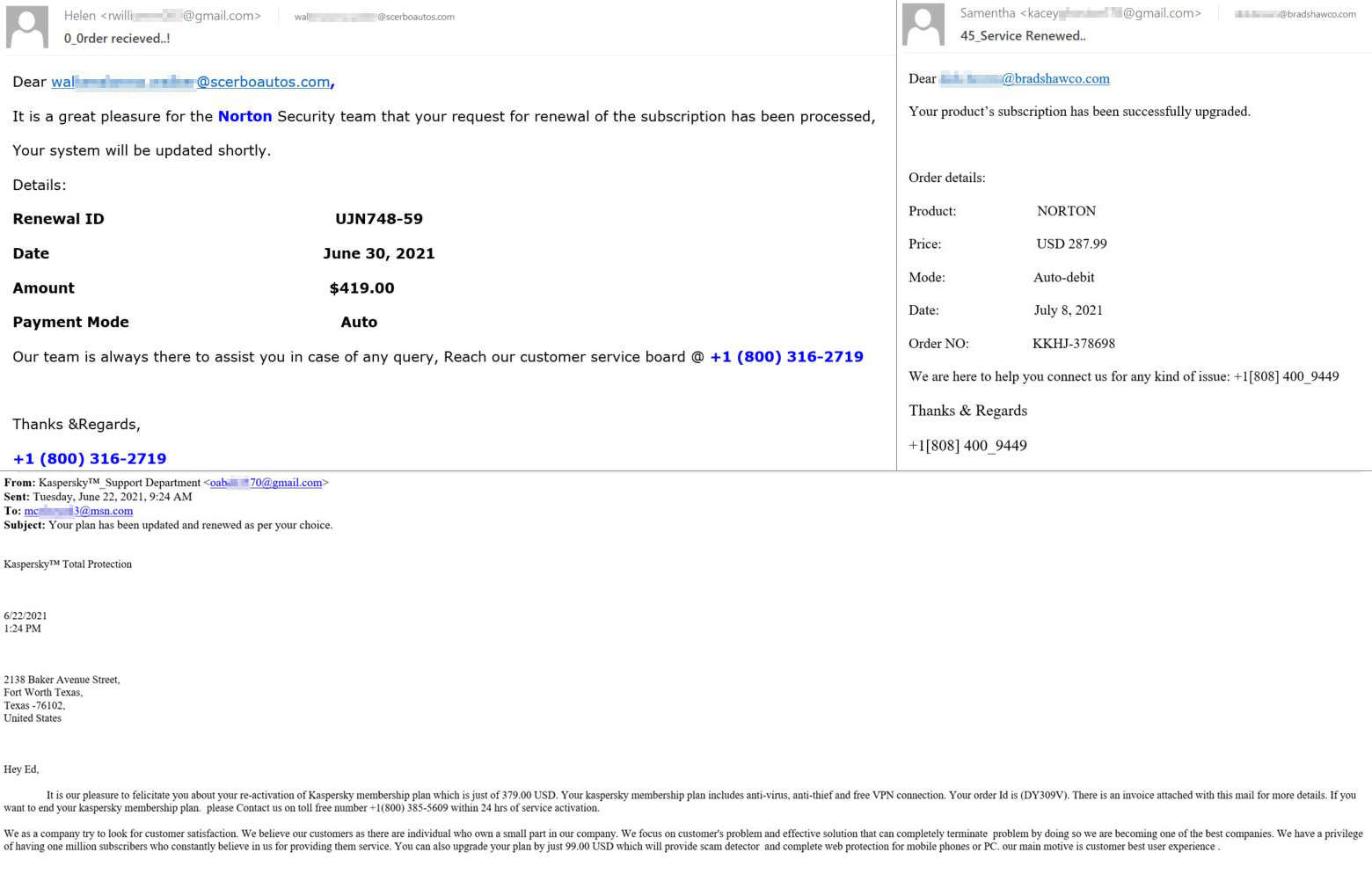With the colossal amount of telephone scamming these days, you’d be hard-pressed to find a phone owner anywhere on the planet who hasn’t been a scammer’s target at least once. But like all forms of cold calling, phone scams are resource-intensive and highly inefficient. Therefore, some scammers try to optimize the process by getting potential victims to call them. One tool they use is good old-fashioned spam.
“If you didn’t make this purchase, please call us”
We recently detected several waves of spam e-mails, seemingly from reputable companies, notifying recipients of substantial purchases. The item in question is usually a high-end device such as the latest Apple Watch or a gaming laptop purchased from Amazon or paid for through PayPal.
Other, more exotic variants crop up from time to time. For example, we detected an e-mail about the purchase of $1,999 worth of “Cryptocurrency (Bitcoin)”:

Fake PayPal notification, including the scammers’ phone number, of a “Cryptocurrency (Bitcoin)” purchase
Other, similar notifications mention the purchase of security software licenses — we’ve seen some referring to Norton and even Kaspersky (although our product lineup has never included a “Kaspersky Total Protection.”)

Fake notifications about the purchase of Norton and “Kaspersky Total Protection” licenses with vishing phone numbers
The scam relies on recipients being so alarmed by the not-insubstantial loss that they will act rashly, hoping to get their money back.
Of course, their money hasn’t gone anywhere — at least, not yet. This particular strain of spam e-mails contain no links, but they do include a phone number that the victim is asked to call if they want to change or cancel the order. Sometimes the number sits unobtrusively somewhere at the bottom of the text. Other times it is highlighted in red and repeated several times in the message.
What happens if you call? Most likely the scammers will try to wangle your login credentials for some financial service or bank card details. Alternatively, they might try to trick you into transferring money or even installing a Trojan on your computer, which has been known to happen. The only limits are the scammers’ imagination and vishing skills.
How to guard against such e-mails
The particulars may change, but all scams have certain elements in common: the use of some sort of trick to get someone to do something. Vishing is no different. Follow these guidelines for safety:
- Do not call back;
- Log in to your account with the service in question — type the address into your browser; don’t click on any links in the message — and check your orders or recent activity page;
- Check your balance and the list of recent transactions on all of your cards, if you have reason for concern;
- Install a reliable antivirus utility with protection against financial attacks, phishing, and online fraud.
 vishing
vishing


 Tips
Tips